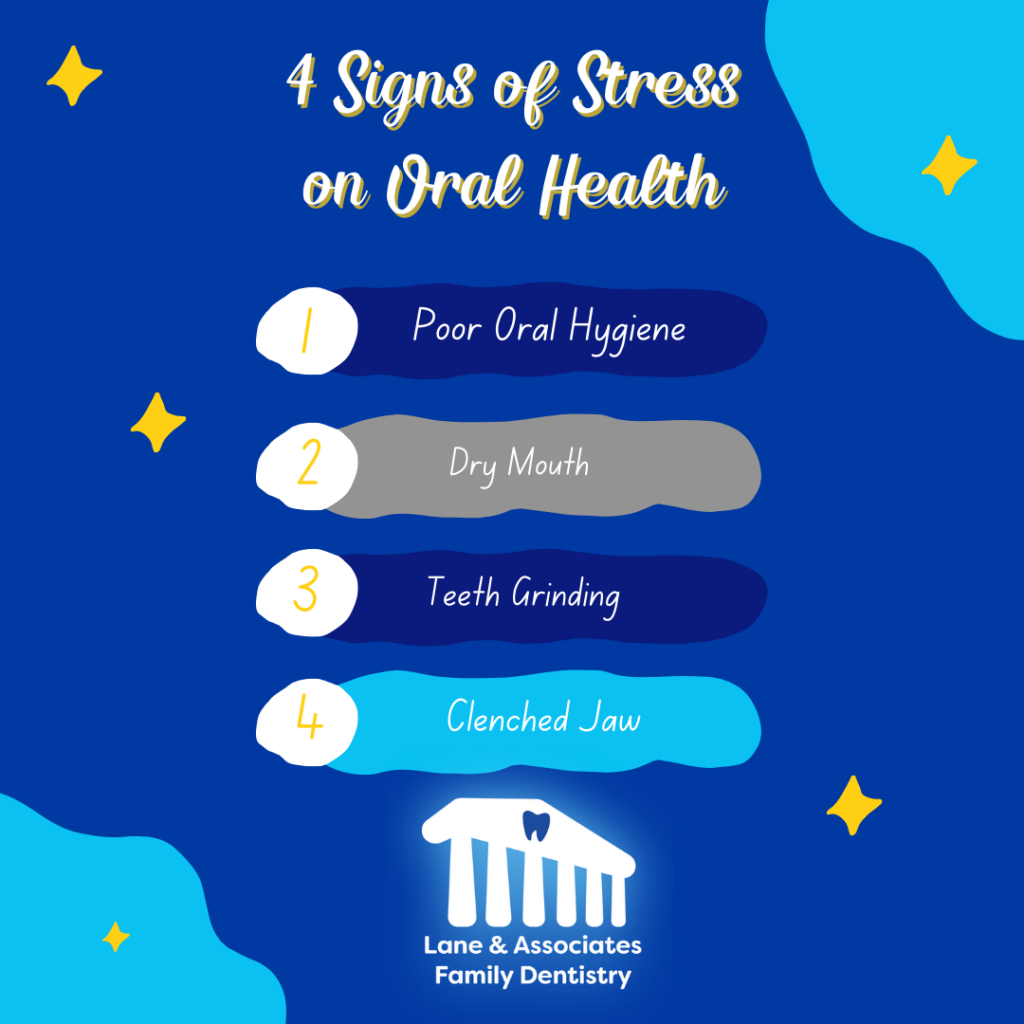April hosts a multitude of national awareness efforts, including Oral Cancer Awareness Month and National Facial Protection Month. This blog post is dedicated to Stress Awareness Month & Oral Health. Stress can have a significant impact on your oral health, so it is important to identify where you may be behind in your oral hygiene and try to improve.
Coping with stress ranges from person to person, but the common factor is stress can weaken our immune systems and trigger our brains to cope in unhealthy ways. Our unhealthy habits can cause lasting damage and put your oral health at risk.
4 Signs of Stress on Your Oral Health:
 Poor Oral Hygiene: It’s easy to find yourself slacking on your oral hygiene routine when you’re stressed. You may find yourself brushing only once every day, if at all, or skipping flossing altogether. This of course can lead to plaque buildup, tooth decay, cavities, and potentially tooth loss.
Poor Oral Hygiene: It’s easy to find yourself slacking on your oral hygiene routine when you’re stressed. You may find yourself brushing only once every day, if at all, or skipping flossing altogether. This of course can lead to plaque buildup, tooth decay, cavities, and potentially tooth loss.- Dry Mouth: Excessive stress can lead to less saliva being produced and you may not be hydrating as you should. Saliva production is necessary to keep our teeth moist, re-mineralize tooth enamel, and fight bacteria. Having dry mouth can lead to tooth decay and gum disease.
- Teeth Grinding: I’m sure we all know someone who grinds their teeth due to anxiety or stress or maybe in their sleep. This is also known as bruxism. It can cause wear and tear on your teeth to the point you may chip or maybe even lose your teeth. Bruxism can also lead to tooth sensitivity or even headaches.
- Clenched Jaw: When you experience constant muscle tension in your jaw from chronic stress, it can cause temporomandibular joint disorder (TMJ). TMJ causes pain in your jaw and around your ears and may lead to difficulty opening your mouth or chewing.
If you’re enduring high levels of stress, it’s super important to keep up with your bi-annual dental visits so that we can help to monitor and manage any impacts stress is having on your oral health.
If you can remove the source of stress from your life, that’s the best way to fend off its negative effects of it. However, if that’s not entirely possible, then turning to healthy habits like yoga, meditation, journaling or exercising can help to reduce tension.
Of course, we are always here and can recommend specific treatment based on what we see during an oral health evaluation!


